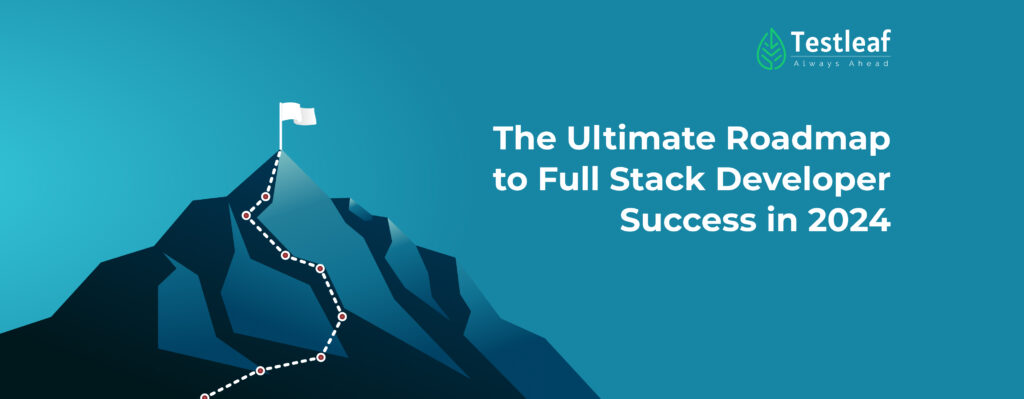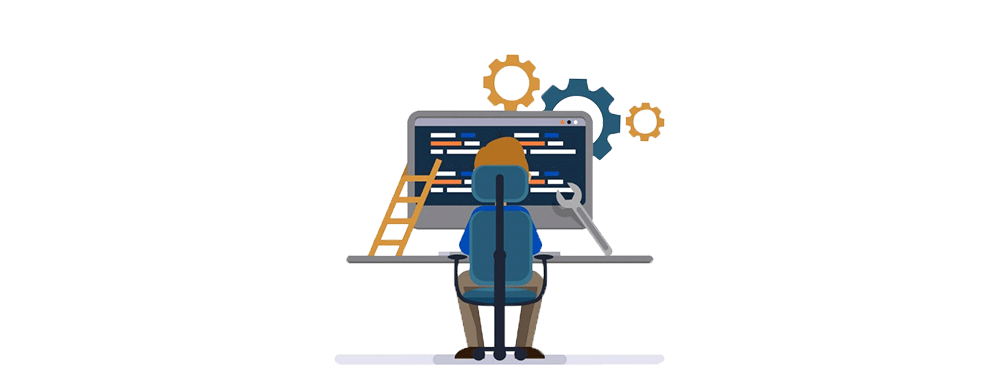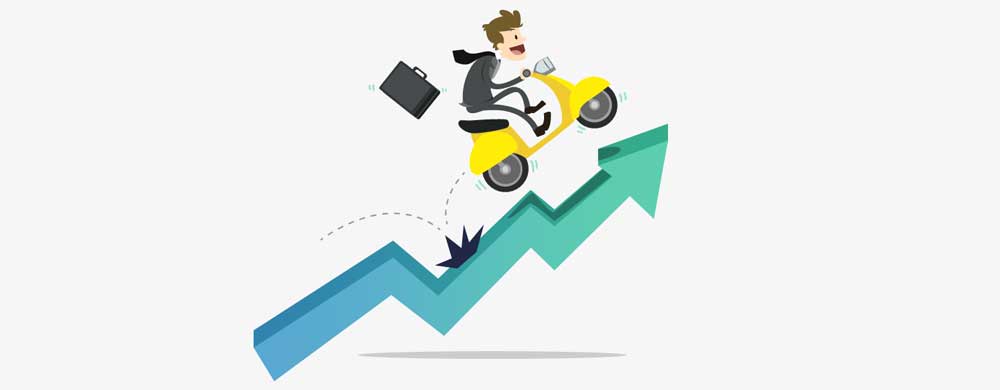Forge Your Path: The Ultimate Roadmap to Full Stack Developer Success in 2024
Pursuing a career as a full stack developer is an exciting journey that requires a diverse set of skills, dedication to continuous learning, and a passion for problem-solving. Here’s a comprehensive guide to help you navigate your path towards becoming a full stack developer in 2024.
Essential Skills for Full Stack Developers:
Frontend Development:
Mastering front-end technologies is crucial for building user-friendly and visually appealing web applications. Key skills include proficiency in HTML, CSS, and JavaScript, along with knowledge of popular frontend frameworks such as React, Angular, or Vue.js.
Backend Development:
Understanding backend development is essential for building robust and scalable web applications. You’ll need to learn server-side programming languages like Node.js, Python, Java, or Ruby, as well as frameworks like Express.js, Django, Spring Boot, or Ruby on Rails.
Database Management:
Proficiency in database management is essential for storing, retrieving, and manipulating data in web applications. Learn SQL for managing relational databases like MySQL, PostgreSQL, or SQLite, as well as NoSQL databases like MongoDB or Firebase for handling unstructured data.
Version Control:
Version control systems like Git are essential for collaborating with other developers, tracking changes to code, and managing project repositories. Familiarize yourself with Git commands, branching strategies, and popular code hosting platforms like GitHub or GitLab.
Deployment and DevOps:
Understanding deployment processes and DevOps practices is crucial for deploying web applications to production environments efficiently and securely. Learn about containerization with Docker, continuous integration and deployment (CI/CD) pipelines, and cloud platforms like AWS, Azure, or Google Cloud.
Basic Design Principles:
While not mandatory, having a basic understanding of design principles and user experience (UX) concepts can help you create more intuitive and visually appealing web applications. Learn about responsive design, accessibility, and usability testing.
Soft Skills:
Effective communication, problem-solving, time management, and teamwork are essential soft skills for full stack developers. Cultivate these skills to collaborate effectively with team members, communicate technical concepts to non-technical stakeholders, and adapt to changing project requirements.
Day-to-Day Activities of a Full Stack Developer:
As a full stack developer, your day-to-day activities may vary depending on the specific project, team structure, and company culture. However, typical tasks may include:
– Collaborating with designers, product managers, and other developers to understand project requirements and translate them into technical specifications.
– Writing clean, maintainable code for both frontend and backend components of web applications.
– Testing and debugging code to ensure functionality, performance, and security.
– Integrating third-party APIs, libraries, and services to extend the functionality of web applications.
– Optimizing web applications for speed, scalability, and responsiveness.
– Participating in code reviews, providing feedback to peers, and continuously improving coding practices.
– Keeping up to date with industry trends, new technologies, and best practices through self-study, online courses, and professional development opportunities.
Roadmap to Becoming a Full Stack Developer in 2024:
Foundational Knowledge:
Start by mastering the fundamentals of web development, including HTML, CSS, JavaScript, and basic programming concepts. Take Testing online courses, attend workshops, and work on personal projects to build a solid foundation.
Frontend Development:
Dive deeper into front-end development by learning popular frameworks like React, Angular, or Vue.js. Explore advanced topics such as state management, component lifecycle, and responsive design.
Backend Development:
Familiarize yourself with server-side programming languages like Node.js, Python, Java, or Ruby, and learn how to build RESTful APIs and handle authentication and authorization.
Database Management:
Gain proficiency in SQL for managing relational databases and explore NoSQL databases like MongoDB or Firebase for handling unstructured data.
Version Control and Collaboration:
Learn how to use Git for version control and collaborate with other developers on projects. Contribute to open-source projects and participate in hackathons to gain real-world experience.
Deployment and DevOps:
Acquire knowledge of deployment processes, containerization with Docker, and cloud platforms like AWS, Azure, or Google Cloud. Understand DevOps practices such as continuous integration, deployment, and monitoring.
Soft Skills Development:
Cultivate soft skills such as communication, problem-solving, and teamwork through practice, feedback, and reflection. Participate in group projects, meetups, and networking events to expand your professional network.
Build a Portfolio:
Showcase your skills and projects by building a portfolio website or GitHub repository. Include personal projects, contributions to open-source projects, and any relevant work experience or internships.
Apply for Entry-Level Positions:
Start applying for entry-level full stack developer positions, internships, or freelance opportunities. Tailor your resume and cover letter to highlight your skills, projects, and accomplishments.
Continuous Learning and Growth:
Stay curious and committed to lifelong learning as a full stack developer. Keep up to date with new technologies, industry trends, and best practices through online courses, workshops, conferences, and professional development opportunities.
Conclusion:
Becoming a full stack developer requires a combination of technical skills, practical experience, and a willingness to adapt and learn. By mastering front-end and back-end technologies, gaining experience in database management and deployment processes, and cultivating essential soft skills, you’ll be well-equipped to pursue a successful career in the IT industry as a full stack developer.
Remember to stay curious, persistent, and proactive in your learning journey, and don’t hesitate to seek guidance and support from mentors, peers, and online communities. Good luck on your journey to becoming a full stack developer in 2024!
Author’s Bio:

As CEO of TestLeaf, I’m dedicated to transforming software testing by empowering individuals with real-world skills and advanced technology. With 24+ years in software engineering, I lead our mission to shape local talent into global software professionals. Join us in redefining the future of test engineering and making a lasting impact in the tech world.
Babu Manickam
CEO – Testleaf






